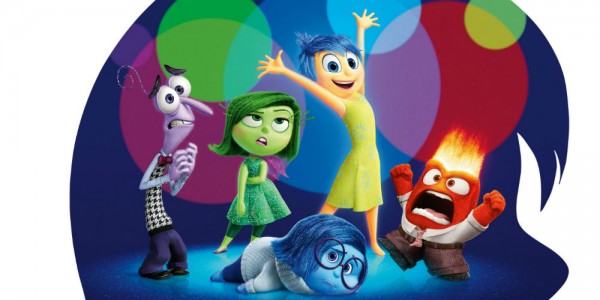Joy, sadness, disgust, anger, and fear. Everyone experiences each of these emotions throughout their lives, and each person handles them in different ways. Young toddlers might have a temper tantrum because they cannot verbally express their feelings. Children are just learning what all of these feelings mean and how to react to them. Some teenagers rebel against parents or authority figures as a way of dealing with their emotions.
Disney Pixar’s film, Inside Out, is a wonderful resource and conversation starter for discussing emotions with your children. Here are a few of the important life lessons it teaches:
It teaches emotional intelligence.
Many children, especially adopted children, need to be taught emotional intelligence. Emotional intelligence is the ability to recognize and manage one’s emotions, as well as how to relate to others on an emotional level. These life skills are essential for living a healthy, happy, and productive life. Many children who are adopted may need extra guidance in this area because of what they experienced early in life.
It teaches that feelings, ALL feelings, are good and OK
The movie did a great job showing that while Joy tried to be in charge, a life is more meaningful when a person experiences all emotions. In the movie, Joy was in charge of the “headquarters” because she wanted Riley, the girl whom the emotions belonged, to always be happy. She never let sadness take control because she was scared of change. But toward the end of the movie, Joy lets sadness take control and then they work together. They realize that feeling sad is OK, and having more than one feeling at one time is OK as well. Some events for adoptive families will have many up and down emotions, including birthdays and holidays and visits with birth parents. Learning this lesson can help prepare children to cope with the good and the painful in all life experiences.
It teaches that you shouldn’t run away from your feelings.
In the movie, the feelings in headquarters give Riley the idea to run away from her family. Riley and her family had recently moved and she was not happy with her new school and new house. So they give her that idea, and she starts to run away. But the feelings decide it is not a good idea, so Riley goes home and cries while her parents console her.
This is also a teaching moment for parents watching the film. As parents, especially adoptive parents, it is important for us to teach the children to be themselves always, and never put on a show for anyone. Let your child tell you when they are mad (even if it is at you) and experience whatever they are feeling without any consequences.
Memories and childhood experiences impact who you become.
In the movie, the emotional headquarters were surrounded by different “life islands,” including honesty, family, and friends. When Riley took her mother’s credit card to buy a ticket to run away, the honesty island crumbled. But when she returned home to her parents, it was rebuilt, along with additional islands, as she continued to learn and grow. When Riley returned home from almost running away, she was able to open up to her parents and share with them what she was feeling.
Adoptive families, especially if the child was adopted as a toddler or older child, need to appreciate their child’s early life experiences. Don’t sweep them under the rug. Talk about your child’s infancy/childhood with them and make sure they can be proud about their background, feel OK to talk to you about it when they want, and know that they can move forward.
This quote from Rebecca Eanes, author of The Newbie’s Guide to Positive Parenting, sums it up perfectly: “So often, children are punished for being human. Children are not allowed to have grumpy moods, bad attitudes, disrespectful tones, or bad days, yet we adults have them all of the time. None of us are perfect, and we must stop holding children to a higher standard of perfection than we can attain ourselves.”
Loving your children unconditionally means loving all of them, including their fear, disgust, and sadness.

